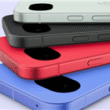The Future of Coding: Is AI Taking Over Programming?
Summary
- Shift from Manual Coding to AI-Assisted Development: The vision of programming solely through conversation with AI could redefine the role of programmers.
- Understanding ‘Atmosphere Programming’: Current coding practices, termed "atmosphere programming," rely heavily on AI-generated solutions from natural language input.
- The Evolution of Software Development: A push for a streamlined development process aligns AI with user intentions, shifting the focus from coding intricacies to problem-solving.
The Transformative Future of Software Development
As the technological landscape evolves rapidly, a striking vision has emerged from the rhetoric of industry leaders, including Elon Musk. He posits a future where coding will no longer require manual input from programmers but will instead pivot toward interaction with artificial intelligence (AI). This notion has ignited lively discussions about the potential role of programmers. Will they become "demand directors," or will they be sidelined by AI advancements?
Musk’s Vision for Software Development
Recently, Musk shared his groundbreaking insights via X, suggesting that his company, xAI, aims to eliminate traditional programming methods. He expressed that AI will streamline the software creation process by enabling users to articulate their requirements verbally. The technology would then automatically generate code that operates seamlessly.
Imagine a scenario where you describe your desired software functionality, and AI translates this into working software. It sounds like a concept from a science fiction novel, yet it highlights a critical trend in technological advancement: the phasing out of manual coding.
The driving force behind Musk’s assertions stems from his confidence in xAI’s innovative capabilities. Reports indicate Musk experimented with a model, “Sherlock Think Alpha,” on the OpenRouter platform, which many speculate is a formidable development from xAI aimed at revolutionizing programming paradigms.
Understanding ‘Atmosphere Programming’
The burgeoning concept of "atmosphere programming” signifies the utilization of AI to autonomously generate code from natural language descriptions. Coined by former OpenAI researcher Andrej Karpathy, this term illustrates the shift toward a more conversational approach to code writing — where developers can simply chat with AI to execute their vision.
The emergence of programming assistants like GitHub’s Copilot and ChatGPT indicates a notable transition toward AI-enhanced coding. Companies are beginning to embrace this model, simplifying complex coding tasks for users without extensive programming backgrounds. Startups, such as Israel’s Base44, aim to harness natural language to create comprehensive software systems.
In this atmosphere, developers can build complete projects with minimal technical expertise, significantly lowering entry barriers to coding.
A Paradigm Shift in Software Development
Musk’s desire to banish “atmosphere programming” and revert to “pure programming” underscores a critical shift in software development paradigms. A user-comment succinctly summarized this change: if AI can flawlessly convert pure intention into precise execution, the nature of software development may evolve from an art, reliant on creativity, to a precision-driven practice.
Historically, the journey from conception to a runnable software product involved numerous design and coding steps marked by creativity, experimentation, and occasional failures. In an ideal future where AI can effectively capture developers’ intentions, programming could transform into a process similar to communicating in a meticulous language, with little room for errors.
This potential shift means a reduction in coding complexity – moving from individualized craftsmanship to standardized expressions of requirements. Future programming might resemble a straightforward blueprint process, enabling anyone with clear needs to enlist AI assistance to fulfill them.
The Challenges Ahead
Despite the allure of this vision, achieving Musk’s goals presents notable challenges. Today’s AI models frequently generate code that is functional yet flawed, often necessitating human intervention for debugging and optimization. Current AI technology may assist in writing basic code but lacks the capability to independently ensure application robustness. This highlights an ongoing need for seasoned engineers to wield oversight in software development.
Musk envisions a future where xAI can elevate AI-generated code to levels synonymous with high-quality, efficient solutions. However, this ambition demands sophisticated comprehension from AI systems regarding both user intent and coding norms.
The Era of ‘Programming with Your Mouth’
Looking forward, if Musk’s predictions materialize, we might enter an era where simply articulating our software needs to a computing device will prompt automated development. This new paradigm could fundamentally transform the roles of programmers into “demand planners” or “product designers.”
This paradigm shift echoes Musk’s philosophy of minimalism – advocating for simplicity and efficiency in processes. When AI can accurately interpret human desires and produce functional code, the focus can shift back to addressing the fundamental problems that software aims to resolve.
From Autonomous Driving to Self-Executing Code
Musk’s vision extends beyond coding alone; it parallels Tesla’s approach to autonomous driving, where traditional engineering principles are condensed into a more integrated end-to-end model. Instead of incrementally dissecting tasks, the AI takes in input from sensors and produces direct outputs.
The goal is similar in software development: streamlining the complexity of converting human needs into machine-executable configurations. By minimizing the number of intermediary steps, the emphasis remains on solving the central problem.
Ultimately, Musk’s ambition reflects a desire to liberate human creativity from intricate technical details, allowing a renewed focus on innovation and user experience. In this future, the coding profession may transform dramatically, revolving less around syntax and more around understanding and fulfilling user requirements.
Encouraged by historical achievements, Musk’s endeavors suggest that the prospect of writing code could one day become a relic of the past, replaced seamlessly by natural language interactions with advanced AI systems. If these technological advancements come to fruition, the landscape of programming will be irrevocably altered, allowing anyone to create software at the speed of thought.





